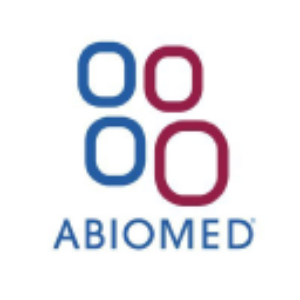Abiomed Acquires preCARDIA, a Breakthrough Medical Device Company, to Improve Outcomes for Heart Failure Patients
Abiomed (NASDAQ: ABMD) has acquired preCARDIA, developer of a proprietary catheter and controller that will complement Abiomed’s product portfolio to expand options for patients with acute decompensated heart failure (ADHF). The preCARDIA system is uniquely designed to rapidly treat ADHF-related volume overload by effectively reducing cardiac filling pressures and promoting decongestion to improve overall cardiac and renal function.
Annually, more than one million patients are admitted to hospitals in the United States with ADHF. Despite available pharmaceutical treatments, heart failure is the leading cause of hospitalization in patients older than 65 years of age. preCARDIA provides heart failure specialists a minimally invasive solution with the potential to improve patient outcomes and lower the cost of care by providing early intervention with this new technology.
preCARDIA’s catheter-based system includes a proprietary superior vena cava (SVC) balloon that delivers programmed intermittent occlusion of the SVC. Potential benefits for patients include improved response to medical management of ADHF, reduced duration of hospital stay, reduced re-hospitalizations and improved quality of life. The system is based on an invention by Navin Kapur, MD, and Richard Karas, MD, PhD, at the Molecular Cardiology Research Institute at Tufts Medical Center in Boston.
The design of the preCARDIA system allows for straightforward placement by physicians and hemodynamic monitoring by medical staff. The system has received Breakthrough Device Designation by the U.S. Food and Drug Administration (FDA).
“Abiomed, with its mission of resting and recovering hearts, is uniquely positioned to build on the legacy of what we started,” said Lisa Wipperman Heine, president and chief executive officer at preCARDIA. “I am confident that the addition of our technology into Abiomed’s product portfolio will further improve outcomes for heart failure patients.”
preCARDIA completed enrollment of 30 patients in an FDA early feasibility study (EFS), which demonstrated acute technical success and significant reduction in cardiac filling pressures and rapid diuresis. Additionally, all patients were free of device- or procedure-related major adverse events through 30 days.
“Heart failure is a devastating condition associated with excess fluid overload known as congestion. preCARDIA is a breakthrough technology that regulates blood flowing into the heart known as preload, thereby reducing congestion and improving heart and kidney function,” said Navin Kapur, MD, physician-scientist and investigator in the Molecular Cardiology Research Institute at Tufts Medical Center, and the chief medical advisor and chair of preCARDIA’s Scientific Advisory Board. “This novel approach has the potential to be a revolutionary tool for the treatment of millions of patients suffering from acute heart failure worldwide.”
“We look forward to advancing preCARDIA’s technology through the regulatory process and expanding our relationship with heart failure specialists to help improve outcomes in early stage acute decompensated heart failure patients, a new patient population for Abiomed,” said Michael R. Minogue, Abiomed’s Chairman, President and Chief Executive Officer. “This acquisition aligns with Abiomed’s principles of leading in technology and innovation and putting patients first.”
The preCARDIA system is available for investigational use only and is not approved for use outside of clinical studies. A projected timeline for commercialization will be announced later this fiscal year.
ABOUT ABIOMED
Based in Danvers, Massachusetts, USA, Abiomed, Inc. is a leading provider of medical devices that provide circulatory support and oxygenation. Our products are designed to enable the heart to rest by improving blood flow and/or provide sufficient oxygenation to those in respiratory failure. For additional information, please visit: www.abiomed.com.
ABOUT preCARDIA
preCARDIA is dedicated to improving patients’ quality of life through pioneering clinically advanced technology that offers an alternative solution for physicians and their patients suffering from ADHF. preCARDIA’s current technology, a proprietary balloon catheter and pump controller, is designed to address ADHF through cardio-renal volume unloading via intermittent superior vena cava (SVC) occlusion.
The company was founded & incubated by MD Start and is headquartered in St. Paul, Minnesota, USA.
CAUTION: The preCARDIA System is an investigational device and is limited by Federal (or United States) Law to investigational use. For more information, please visit: www.precardia.com.
FORWARD-LOOKING STATEMENTS
Any forward-looking statements are subject to risks and uncertainties such as those described in Abiomed's periodic reports on file with the Securities and Exchange Commission. Actual results may differ materially from anticipated results.
View source version on businesswire.com: https://www.businesswire.com/news/home/20210601005259/en/







